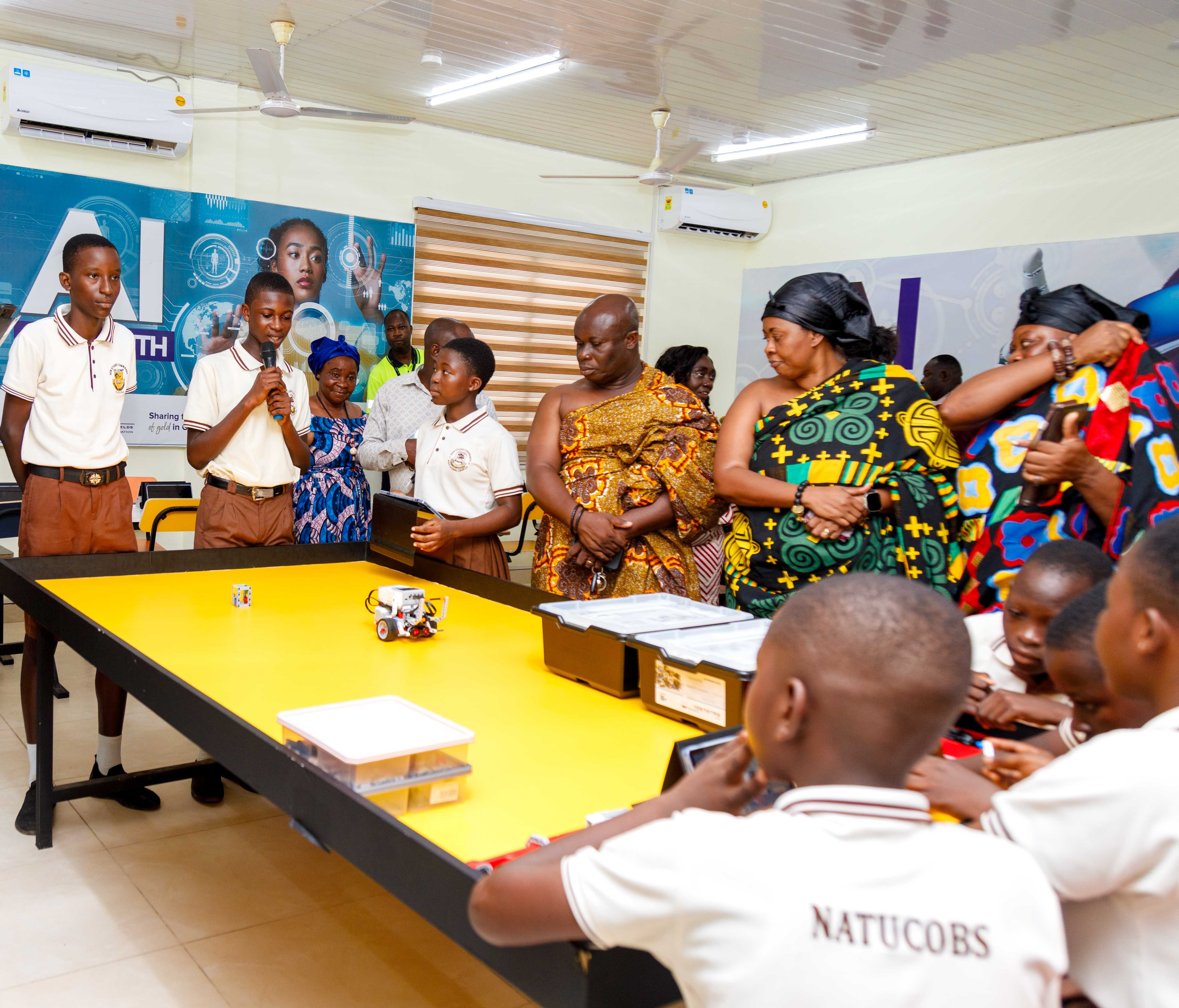Media ![]() Our stories
Our stories
The Gold Fields Ghana Foundation has officially handed over a state-of the-art Smart Lab and Innovation Centre at New Atuabo, aimed at transforming learning experiences and empowering young minds with technological skills.
The modern facility will offer introductory lessons in robotics and coding with mBot, Arduino programming using Tinkercard, physical computing with Micro bits, as well as other exciting programmes. The courses are designed for pupils in primary five through to JHS three from both public and private schools in the community.
The lab will also introduce the school children to AI and robotics and promote the young learners' independence and provide personalised learning, while making them curious about emerging technological trends.
At the handing over of the facility, Elliot Twum, Senior Vice President and Managing Director of Gold Fields Ghana, expressed the Foundation's commitment to advancing technology in education.
"With the growing interest in AI and robotics, the Smart Lab and Innovation Centre has been set up as a pilot project for advancing the integration of technology and digital tools into teaching and learning experience," said Mr Twum.
"Education is crucial and we believe in its transformative power and the critical role it plays in the development of communities," he added.
The chief of New Atuabo, Nana Kwaku Baah, urged the pupils to take full advantage of the facility. "Society is playing its role through this project and it is now up to you to play your part by making good use of it," he remarked.
The Foundation invested US$68,000 to set up the facility, which can accommodate 54 children. Two teachers from the New Atuabo Basic School have been trained in robotics and AI to handle lessons.
A committee, chaired by the chief of New Atuabo and established in partnership with the Ghana Education Service, will oversee the proper management of the facility.
This initiative is part of the Foundation's broader education drive, which includes the construction and rehabilitation of 89 schools, libraries and other educational facilities, as well as four ICT centres in the host communities.


